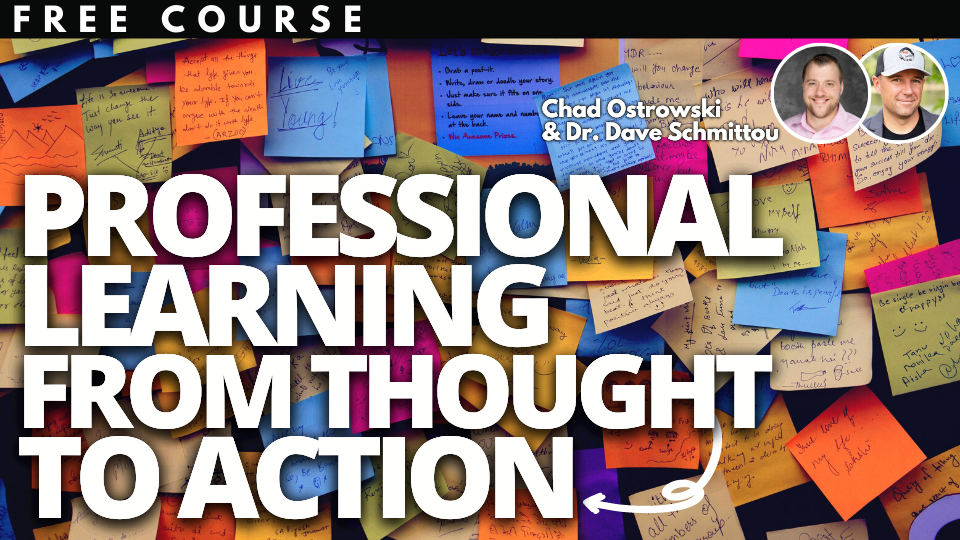TL;DR:
- The world we live in is VUCA (Volatile, Uncertain, Complex, and Ambiguous).
- This post shares 5 leadership skills educators need to thrive in a VUCA world.
- Remember to support one another.
- Be ready to face the unknown with flexibility.
- Address the repairable systems.
- Clarify communication.
We live in a VUCA world. VUCA stands for Volatile, Uncertain, Complex, and Ambiguous. The pace of change will continue to impact educators. As teachers and administrators continue to navigate quarantine guidelines, remote learning, student engagement, and constant change, it will be important to develop skills that help educators move from surviving to thriving.
Educators must recognize that uncertainty and complexity require different skills than the traditional school year, which we have not experienced in over two years. “We have moved from a complicated world to a complex one. The two aren’t the same – and complexity isn’t just complication on steroids” (Hefferman, 2020). The ability to navigate change and ambiguity will require a new skill set.
Ignoring the system or hoping a complex issue will be addressed through seat time is the equivalent of patching a hole in your boat with duct tape and hoping you don’t sink. Click To TweetLeadership Skills: Think People First
During times of uncertainty, it is tempting to focus on “my class” or “my students.” The rise of professional learning communities has placed a focus on the phrases “our school” and “our students.” This first skill may come naturally to many educators. However, the pandemic shifted our focus to survival. During this time, it was easy to fixate on “my needs” or “my class,” rather than focusing on the needs of our school and my co-workers. The schools that had previously embraced the concept of a professional learning community were more prepared to support one another during remote learning and through the challenges that all schools faced.
During times of isolation, it became apparent how much educators thrived on collaboration and the ability to share strategies and resources with their colleagues. “A precondition for doing anything to strengthen our practice and improve a school is the existence of a collegial culture in which professionals talk about practice, share their craft knowledge, and observe and root for the success of one another” (Barth, 2006). When was the last time your colleagues rooted for the success of one another?
Leadership Skills: Develop Cognitive Flexibility
During times of certainty, school staff can count on the annual fall field trip or the 4th-grade concert. During the pandemic, teaching and learning have been disrupted. Due to a shortage of bus drivers in many school districts, a group of students may arrive at school one hour late. Field trips were limited or canceled. When the school day begins with twenty substitute teacher openings and fifteen are unfilled, the principal and teachers must adapt.
“Developing cognitive flexibility enables you to envision multiple scenarios, develop different solutions simultaneously, and pull the plug and move on when an approach isn’t working” (Colvin, 2020). The ability to navigate change and adapt is critically important. Reflect on the past school year. Then, identify a time when cognitive flexibility helped your school team adapt to a VUCA world. What are the benefits of utilizing cognitive flexibility when the situation is complex and unpredictable?
Leadership Skills: Focus On Systems Thinking
In a VUCA world, the natural tendency is to blame someone for the flaws in the school system. Another common behavior is to ignore the system and focus on what is not working in a single classroom. Systems thinking is beneficial to teachers and administrators. When we attempt to teach students through remote learning, that is a new system for most educators. When we identify equity issues in our system, it requires a systematic approach to change the system. “Most organizations do not rise to the level of their goals. They fall to the level of their systems” (Grier, 2021).
Identify the gaps in your school or system and use these as leverage points to address the system. Ignoring the system or hoping a complex issue will be addressed through seat time is the equivalent of patching a hole in your boat with duct tape and hoping you don’t sink. What is one system that educators on your team need to address as a team?
Leadership Skills: Embrace Ambiguity
Educators don’t like ambiguity. In undergraduate courses, we were taught to begin a unit with ‘the end in mind.’ Administrators were taught that intentional planning supports purposeful implementation. We have become proficient in the art of creating master schedules, duty schedules, car rider line procedures, student handbooks, and family nights.
In a VUCA world, schedules have been changed multiple times, guests may not be allowed on campus, and in-person student assemblies may not be allowed in some schools due to social distancing guidelines. We are operating in a constant state of ambiguity. “We can lower the ambiguity threshold by saying: We know the one thing we’re going to do right now. We’re going to chunk this goal down to targets” (McChesney, 2020). What is one thing that your team can do right now to embrace and lower the ambiguity threshold you are experiencing?
[scroll down to keep reading]Leadership Skills: Provide Clarity
Teachers and administrators may feel like they are looking into a fog with zero percent visibility. It can be difficult to communicate school procedures with clarity in the midst of uncertainty and unpredictable times. Clarity may sound like, “This is what we know at this time….” or “These are the three plans we will implement if needed. We will communicate which plan the school will implement if schools are closed for onsite learning.” The enemy of clarity is complexity. Educators often suffer from analysis paralysis, and this can become a serious issue in a VUCA world.
Educators, like most humans, thrive on certainty, schedules, and lesson plans. When our world is disrupted, we seek clarity. Too often, school staff seeks clarity from the principal. In a VUCA world, the best approach would be to form a team of grade-level leaders or department chairs. Then, focus on the message that needs to be shared.
Multiple perspectives can often bring more clarity than a single perspective. “While you can’t predict what’s coming with perfect certainty, you can develop much more clarity than you might imagine about what you could and should become, create a plan to live into it, and then set it into motion” (Johnson & Suskewicz, 2020). What is one area that staff can create clarity and communicate with stakeholders this week? How can clarity support students, staff, and families?
Conclusion
In an uncertain world, teachers and administrators will continue to face setbacks and challenges. The most successful schools will lean into the disruption and find innovative ways to provide students with a quality education. There was no way for educators to predict the amount of disruption caused by the global pandemic. Volatility, uncertainty, complexity, and ambiguity are the “new normal.” With these five leadership skills, educators can find hope, strength, and clarity.
References
Barth, R. (2006). Improving relationships within the schoolhouse. Educational Leadership, 63(6), 8-13. https://www.ascd.org/el/articles/improving-relationships-within-the-schoolhouse
Colvin, B. (2020). How to get comfortable leading through uncertainty. https://www.coachingworksnyc.com/blog/2020/1/24/how-to-get-comfortable-leading-through-uncertainty
Grier, T. (2021). Tweet from Dr. Terry Grier on Twitter. https://mobile.twitter.com/tgrierhisd/status/1386783963159597064
Hefferman, M. (2020). Uncharted: How to navigate the future. Avid Reader Press.
Johnson, M.W., and Suskewicz, J. (2020). Leaders, do you have a clear vision for the post-crisis future? Harvard Business Review. https://hbr.org/2020/04/leaders-do-you-have-a-clear-vision-for-the-post-crisis-future
McChesney. C. (2020). Executing in uncertainty and complexity. https://franklincovey.dk/wp-content/uploads/2020/04/Executing-in-Uncertainty-and-Complexity.pdf
About Steven Weber
Dr. Steven Weber is the Associate Superintendent for Teaching and Learning with Fayetteville Public Schools (AR). His areas of research include curriculum design, formative assessment, professional learning, and school leadership.




